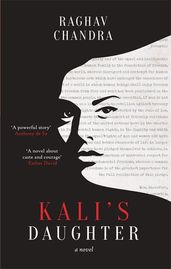Synopsis
On a chilly November morning in Geneva,
Deepika Thakur prepares to address the
United Nations Human Rights Council.
Despite her personal experience of
oppression as a Dalit woman, she must
claim that the Indian government remains
firmly committed to eradicating castebased
discrimination in the country.
As echoes of humiliation and atrocities
flood her memory, Deepika is transported
back in time, to almost six years ago, when
she became the first member of her family
to be selected for the Indian Civil Services.
She had moved from Bhopal, her home
town, to the Lal Bahadur Shastri National
Academy of Administration in Mussoorie,
to prepare for a career as a civil servant. It
was here that she met Aman, an uppercaste
Brahmin, and Vijay, a fellow Dalit.
Both relationships defined by caste and
class politics, Deepika had found herself in
the crosshairs of an ancient history built on
inequality and prejudice. Yet, as a diplomat
from India's Foreign Service, she must
deny caste, and the fact that India's
fractured society, despite its apparent
modernization and progress, remains stuck
in the middle ages. Her father's words
come back to haunt her: ‘When you cannot
fight the system, you must endure.’
Will Deepika fight? Will she endure?
What will she say to the Human Rights
Council? How will she represent India to
the rest of the world?
